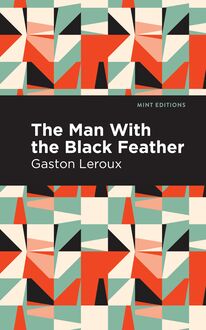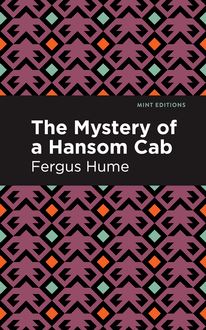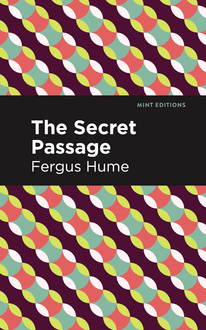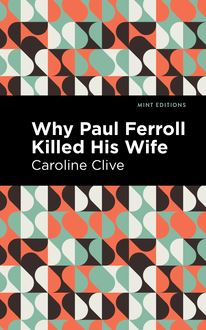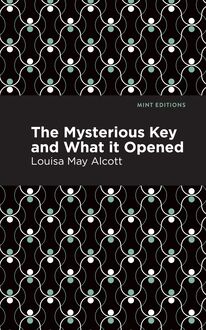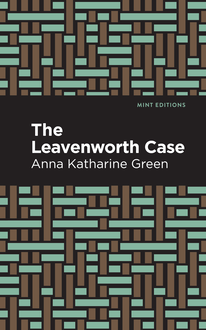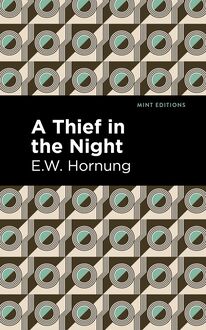-
 Univers
Univers
-
 Ebooks
Ebooks
-
 Livres audio
Livres audio
-
 Presse
Presse
-
 Podcasts
Podcasts
-
 BD
BD
-
 Documents
Documents
-
- Cours
- Révisions
- Ressources pédagogiques
- Sciences de l’éducation
- Manuels scolaires
- Langues
- Travaux de classe
- Annales de BEP
- Etudes supérieures
- Maternelle et primaire
- Fiches de lecture
- Orientation scolaire
- Méthodologie
- Corrigés de devoir
- Annales d’examens et concours
- Annales du bac
- Annales du brevet
- Rapports de stage
La lecture à portée de main
Vous pourrez modifier la taille du texte de cet ouvrage
Découvre YouScribe en t'inscrivant gratuitement
Je m'inscrisDécouvre YouScribe en t'inscrivant gratuitement
Je m'inscrisEn savoir plus
Vous pourrez modifier la taille du texte de cet ouvrage
En savoir plus

Description
Hide and Seek (1854) is a novel by Wilkie Collins. Written in the aftermath of Antonina (1850), his successful debut, Hide and Seek finds the author honing the trademark sense of mystery and psychological unease that would make him a household name around the world. Recognized as an important Victorian novelist and pioneer of detective fiction, Wilkie Collins was a writer with a gift for thoughtful entertainment, stories written for a popular audience that continue to resonate with scholars and readers today. Mary Grice, a young woman of wealth and social standing, becomes pregnant after a brief affair with a man calling himself Arthur Carr. Banished from her home, she dies during childbirth in the care of a group of circus performers, who adopt the baby as their own. Raised by Martha Peckover, the wife of a clown, young Mary is exploited by the circus owner following an accident with a horse, which leaves her deaf and mute. In order to save her, Martha brings Mary to a minister, who ensures she is adopted into a good home. Taken in by the Blyth family, Mary becomes known as Madonna for her beauty and grace, and soon catches the eye of Zack Thorpe. As the story unfolds, a mystery involving Mary’s father begins to take shape, with implications for her blossoming romance with Zack. Beyond its sensational plot, Hide and Seek is a masterpiece of Gothic suspense and mystery for seasoned readers of Victorian fiction and newcomers alike. With a beautifully designed cover and professionally typeset manuscript, this edition of Wilkie Collins’ Hide and Seek is a classic work of English literature reimagined for modern readers.
Sujets
Informations
| Publié par | Mint Editions |
| Date de parution | 21 mai 2021 |
| Nombre de lectures | 0 |
| EAN13 | 9781513287232 |
| Langue | English |
| Poids de l'ouvrage | 1 Mo |
Informations légales : prix de location à la page 0,0500€. Cette information est donnée uniquement à titre indicatif conformément à la législation en vigueur.
Extrait
Hide and Seek
Wilkie Collins
Hide and Seek was first published in 1854.
This edition published by Mint Editions 2021.
ISBN 9781513282213 | E-ISBN 9781513287232
Published by Mint Editions®
minteditionbooks.com
Publishing Director: Jennifer Newens
Design & Production: Rachel Lopez Metzger
Project Manager: Micaela Clark
Typesetting: Westchester Publishing Services
C ONTENTS O PENING C HAPTER . A C HILD’S S UNDAY B OOK I. T HE H IDING I. A N EW N EIGHBORHOOD , AND A S TRANGE C HARACTER II. M R . B LYTH IN HIS S TUDIO III. M ADONNA’S C HILDHOOD IV. M ADONNA’S M OTHER V. M ADONNA’S M ISFORTUNE VI. M ADONNA G OES TO L ONDON VII. M ADONNA IN H ER N EW H OME VIII. M ENTOR AND T ELEMACHUS IX. T HE T RIBULATIONS OF Z ACK X. M R . B LYTH’S D RAWING A CADEMY XI. T HE B REWING OF THE S TORM B OOK II. T HE S EEKING I. T HE M AN WITH THE B LACK S KULL -C AP II. T HE P RODIGAL’S R ETURN III. T HE S EARCH B EGUN IV. F ATE W ORKS , WITH Z ACK FOR AN I NSTRUMENT V. F ATE W ORKS , WITH M R . B LYTH FOR AN I NSTRUMENT VI. T HE F INDING OF THE C LUE VII. T HE B OX OF L ETTERS VIII. J OANNA G RICE’S N ARRATIVE IX. M ORE D ISCOVERIES X. T HE S QUAW’S M IXTURE XI. T HE G ARDEN D OOR XII. T HE H AIR B RACELET XIII. T HE S EARCH FOR A RTHUR C ARR XIV. M ARY’S G RAVE XV. T HE D ISCOVERY OF A RTHUR C ARR XVI. T HE D AY OF R ECKONING XVII. M ATTHEW G RICE’S R EVENGE C LOSING C HAPTER . A Y EAR AND A H ALF A FTERWARDS
O PENING C HAPTER . A C HILD’S S UNDAY
At a quarter to one o’clock, on a wet Sunday afternoon, in November 1837, Samuel Snoxell, page to Mr. Zachary Thorpe, of Baregrove Square, London, left the area gate with three umbrellas under his arm, to meet his master and mistress at the church door, on the conclusion of morning service. Snoxell had been specially directed by the housemaid to distribute his three umbrellas in the following manner: the new silk umbrella was to be given to Mr. and Mrs. Thorpe; the old silk umbrella was to be handed to Mr. Goodworth, Mrs. Thorpe’s father; and the heavy gingham was to be kept by Snoxell himself, for the special protection of “Master Zack,” aged six years, and the only child of Mr. Thorpe. Furnished with these instructions, the page set forth on his way to the church.
The morning had been fine for November; but before midday the clouds had gathered, the rain had begun, and the inveterate fog of the season had closed dingily over the wet streets, far and near. The garden in the middle of Baregrove Square—with its close-cut turf, its vacant beds, its bran-new rustic seats, its withered young trees that had not yet grown as high as the railings around them—seemed to be absolutely rotting away in yellow mist and softly-steady rain, and was deserted even by the cats. All blinds were drawn down for the most part over all windows; what light came from the sky came like light seen through dusty glass; the grim brown hue of the brick houses looked more dirtily mournful than ever; the smoke from the chimney-pots was lost mysteriously in deepening superincumbent fog; the muddy gutters gurgled; the heavy rain-drops dripped into empty areas audibly. No object great or small, no out-of-door litter whatever appeared anywhere, to break the dismal uniformity of line and substance in the perspective of the square. No living being moved over the watery pavement, save the solitary Snoxell. He plodded on into a Crescent, and still the awful Sunday solitude spread grimly humid all around him. He next entered a street with some closed shops in it; and here, at last, some consoling signs of human life attracted his attention. He now saw the crossing-sweeper of the district (off duty till church came out) smoking a pipe under the covered way that led to a mews. He detected, through half closed shutters, a chemist’s apprentice yawing over a large book. He passed a navigator, an ostler, and two costermongers wandering wearily backwards and forwards before a closed public-house door. He heard the heavy clop clop of thickly-booted feet advancing behind him, and a stern voice growling, “Now then! be off with you, or you’ll get locked up!”—and, looking round, saw an orange-girl, guilty of having obstructed an empty pavement by sitting on the curb-stone, driven along before a policeman, who was followed admiringly by a ragged boy gnawing a piece of orange-peel. Having delayed a moment to watch this Sunday procession of three with melancholy curiosity as it moved by him, Snoxell was about to turn the corner of a street which led directly to the church, when a shrill series of cries in a child’s voice struck on his ear and stopped his progress immediately.
The page stood stock-still in astonishment for an instant—then pulled the new silk umbrella from under his arm, and turned the corner in a violent hurry. His suspicions had not deceived him. There was Mr. Thorpe himself walking sternly homeward through the rain, before church was over. He led by the hand “Master Zack,” who was trotting along under protest, with his hat half off his head, hanging as far back from his father’s side as he possibly could, and howling all the time at the utmost pitch of a very powerful pair of lungs.
Mr. Thorpe stopped as he passed the page, and snatched the umbrella out of Snoxell’s hand, with unaccustomed impetuity; said sharply, “Go to your mistress, go on to the church;” and then resumed his road home, dragging his son after him faster than ever.
“Snoxy! Snoxy!” screamed Master Zack, turning round towards the page, so that he tripped himself up and fell against his father’s legs at every third step; “I’ve been a naughty boy at church!”
“Ah! you look like it, you do,” muttered Snoxell to himself sarcastically, as he went on. With that expression of opinion, the page approached the church portico, and waited sulkily among his fellow servants and their umbrellas for the congregation to come out.
When Mr. Goodworth and Mrs. Thorpe left the church, the old gentleman, regardless of appearances, seized eagerly on the despised gingham umbrella, because it was the largest he could get, and took his daughter home under it in triumph. Mrs. Thorpe was very silent, and sighed dolefully once or twice, when her father’s attention wandered from her to the people passing along the street.
“You’re fretting about Zack,” said the old gentleman, looking round suddenly at his daughter. “Never mind! leave it to me. I’ll undertake to beg him off this time.”
“It’s very disheartening and shocking to find him behaving so,” said Mrs. Thorpe, “after the careful way we’ve brought him up in, too!”
“Nonsense, my love! No, I don’t mean that—I beg your pardon. But who can be surprised that a child of six years old should be tired of a sermon forty minutes long by my watch? I was tired of it myself I know, though I wasn’t candid enough to show it as the boy did. There! there! we won’t begin to argue: I’ll beg Zack off this time, and we’ll say no more about it.”
Mr. Goodworth’s announcement of his benevolent intentions towards Zack seemed to have very little effect on Mrs. Thorpe; but she said nothing on that subject or any other during the rest of the dreary walk home, through rain, fog, and mud, to Baregrove Square.
Rooms have their mysterious peculiarities of physiognomy as well as men. There are plenty of rooms, all of much the same size, all furnished in much the same manner, which, nevertheless, differ completely in expression (if such a term may be allowed) one from the other; reflecting the various characters of their inhabitants by such fine varieties of effect in the furniture-features generally common to all, as are often, like the infinitesimal varieties of eyes, noses, and mouths, too intricately minute to be traceable. Now, the parlor of Mr. Thorpe’s house was neat, clean, comfortably and sensibly furnished. It was of the average size. It had the usual side-board, dining-table, looking-glass, scroll fender, marble chimney-piece with a clock on it, carpet with a drugget over it, and wire window-blinds to keep people from looking in, characteristic of all respectable London parlors of the middle class. And yet it was an inveterately severe-looking room—a room that seemed as if it had never been convivial, never uproarious, never anything but sternly comfortable and serenely dull—a room which appeared to be as unconscious of acts of mercy, and easy unreasoning over-affectionate forgiveness to offenders of any kind—juvenile or otherwise—as if it had been a cell in Newgate, or a private torturing chamber in the Inquisition. Perhaps Mr. Goodworth felt thus affected by the parlor (especially in November weather) as soon as he entered it—for, although he had promised to beg Zack off, although Mr. Thorpe was sitting alone by the table and accessible to petitions, with a book in his hand, the old gentleman hesitated uneasily for a minute or two, and suffered his daughter to speak first.
“Where is Zack?” asked Mrs. Thorpe, glancing quickly and nervously all round her.
“He is locked up in my dressing-room,” answered her husband without taking his eyes off the book.
“In your dressing-room!” echoed Mrs. Thorpe, looking as startled and horrified as if she had received a blow instead of an answer; “in your dressing-room! Good heavens, Zachary! how do you know the child hasn’t got at your razors?”
“They are locked up,” rejoined Mr. Thorpe, with the mildest reproof in his voice, and the mournfullest self-possession in his manner. “I took care before I left the boy, that he should get at nothing which could do him any injury. He is locked up, and will remain locked up, because”—
“I say, Thorpe! won’t you let him off this time?” interrupted Mr. Goodworth, boldly plunging head foremost, with his petition for mercy, into the conversation.
“If you had allowed me to proceed, sir,” said Mr. Thorpe, who always called his father-in-law Sir, “I should have simply remarked that, after having enlarged to my son (in such terms, you will obser
-
 Univers
Univers
-
 Ebooks
Ebooks
-
 Livres audio
Livres audio
-
 Presse
Presse
-
 Podcasts
Podcasts
-
 BD
BD
-
 Documents
Documents
-
Jeunesse
-
Littérature
-
Ressources professionnelles
-
Santé et bien-être
-
Savoirs
-
Education
-
Loisirs et hobbies
-
Art, musique et cinéma
-
Actualité et débat de société
-
Jeunesse
-
Littérature
-
Ressources professionnelles
-
Santé et bien-être
-
Savoirs
-
Education
-
Loisirs et hobbies
-
Art, musique et cinéma
-
Actualité et débat de société
-
Actualités
-
Lifestyle
-
Presse jeunesse
-
Presse professionnelle
-
Pratique
-
Presse sportive
-
Presse internationale
-
Culture & Médias
-
Action et Aventures
-
Science-fiction et Fantasy
-
Société
-
Jeunesse
-
Littérature
-
Ressources professionnelles
-
Santé et bien-être
-
Savoirs
-
Education
-
Loisirs et hobbies
-
Art, musique et cinéma
-
Actualité et débat de société
- Cours
- Révisions
- Ressources pédagogiques
- Sciences de l’éducation
- Manuels scolaires
- Langues
- Travaux de classe
- Annales de BEP
- Etudes supérieures
- Maternelle et primaire
- Fiches de lecture
- Orientation scolaire
- Méthodologie
- Corrigés de devoir
- Annales d’examens et concours
- Annales du bac
- Annales du brevet
- Rapports de stage





